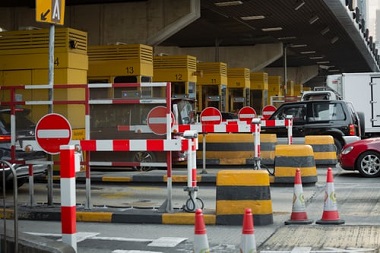





| Benton County Republicans’ Private Fundraising Event, “Bent-on Boots and Bling” with Trey Taylor |
| Friday, September 5, 2025 at 5:00 pm |
| Featuring Trey Taylor Music Private Event Friday, September 5, 2025 5:00-5:30 pm VIP Reception 5:30-8:00 pm Heavy Appetizers, Auction, Concert Red: $750 VIP Reception Front Row Table Sponsor White: $500 Table Sponsor Blue: $50 per person Limited Seating. Get Yours Now!!! Support Local Dress up: Bling, Cowboy, Patriotic Benton County Republican FUNDRAISER www.BentonGOP.org Get your tickets today at: https://www.bentongop.org/event-details/benton-county-republicans-fundraiser/form About Trey: Trey is the youngest African American Man in Country Music History. The Denver Post wrote "It's impossible to miss his enthusiasm. With a fondness for cowboy boots, gaudy colors and dazzling jewelry, Trey Taylor could stand toe to toe with any of the Pop, Country or even Rap contemporaries of his generation.“ |
| Trysting Tree Golf Club, 34028 NE Electric Rd., Corvallis |

Section 5(10)†Significant traffic congestion adversely impacts Oregon’s economy and the quality of life of Oregon’s communities. Where appropriate, variable rate tolls should be applied to reduce traffic congestion and support the state’s greenhouse gas emissions reduction goals.â€
Revises language to prioritize ‘electronic toll collection system’ that doesn’t require a vehicle to stop using transponder readers and license plate capture cameras to collect tolls. Extends the source of money for the Toll Program Fund to gifts, legislative allotment, federal sources and fees paid for information. The usage of funds is extended to develop and implement toll programs, and make improvements on tollways or adjacent highways to reduce impacts of diversion for tolling.
In addition to the state revenue bonds that obligates future generations to pay, the ‘tollway project revenue bonds’ are to be held “superior to any other lien or charge and to any law of the state requiring the department to spend moneys for tollway project revenue projects.†The -8 will extend short-term borrowing by the State Treasurer to allow various types of credit agreements to $600 million to mature in five years. The department shall pay for borrowing “Using funds from the State Highway Fund or other funds that are legally available to the department or State Treasurer for the purposes for which the moneys were borrowed, including moneys received by the department or State Treasurer from the United States government.â€
Section 8 (7) is looking for excuses to use constitutionally collected road taxes to cover costs for structural changes needed for tolling, taking funds from improving roads and infrastructure in rural areas.
“Moneys in the Toll Program Fund that are transferred from the State Highway Fund or are derived from any revenues under Article IX, section 3a, of the Oregon Constitution, may be used only for purposes permitted by Article IX, section 3a, of the Oregon Constitution.â€
SECTION 35 (1) “To the extent necessary and permitted by state and federal law and section 3a, Article IX of the Oregon Constitution, toll projects on interstate highways shall include investments to make improvements or fund efforts to reduce congestion, improve safety and reduce impacts of diversion as a result of the toll project.â€
There is also the constitutionality question on ‘equitable income-based toll rates’. All this will need to be part of the hearing on May 11, 2021, 8 A.M. before the Joint Committee on Transportation if they expect to find favor with the majority of voters who oppose tolling.| Post Date: 2021-05-09 10:00:20 | Last Update: 2021-05-09 10:35:58 |